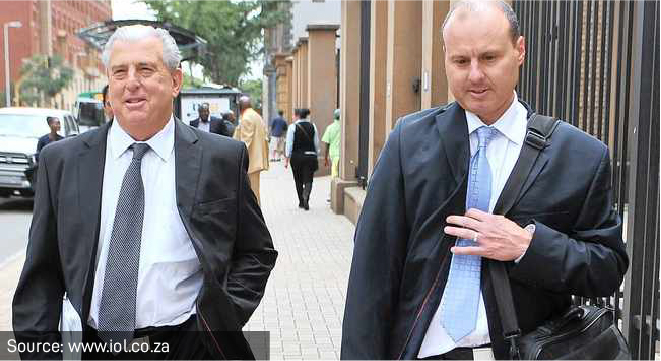The Constitutional Court has refused to hear an appeal by former personal injury lawyers Ronald and Darren Bobroff against a Supreme Court of Appeal (SCA) judgment that ordered them to hand over more than R100 million allegedly stolen from clients who were meant to benefit from the Road Accident Fund (RAF).
In a ruling handed down on 18 January, the Constitutional Court said the Bobroffs’ application for leave to appeal “does not engage the jurisdiction of the court” and dismissed it with costs.
Last year, the Bobroffs appealed against an order by the Gauteng High Court that they forfeit to the state some R103m held in bank accounts in Israel. The National Director of Public Prosecutions (NDPP) claimed the money was the proceeds of crime.
In their SCA appeal, the Bobroffs questioned whether the high court had the jurisdiction to grant a forfeiture order in terms of the Prevention of Organised Crime Act (POCA) in respect of assets held in Israel, whereas they lived in Australia. And if it did, whether the evidence had established that the money was the proceeds of unlawful activity committed in South Africa.
The SCA found that POCA provided for the high court to grant a forfeiture order in respect of the proceeds of crime irrespective of where they may be held.
It also concluded that, based on the evidence, the money in the accounts was the proceeds of unlawful activities and that the money had been laundered to disguise its origin and identity before it had been deposited in the Israeli bank accounts.
However, the Bobroffs did win a slight reprieve. The SCA ruled that slightly more than R7m of the more than R100m that had been forfeited to the State be handed back to them, because the NDPP had not shown that it was the proceeds of unlawful activity.
The Bobroffs, who were directors of the firm Ronald Bobroff and Partners, fled to Australia in 2016 to evade arrest on charges related to overcharging their RAF clients through illegal fee agreements.
They were struck off the roll in March 2016, and police issued warrants of arrest for the pair. However, before the warrants could be executed, they left for Australia.



